Self-care is an empowering act and is crucial for those of us interested in maintaining vibrant health throughout our lives.
Medicine is not just something to prevent illness or make you “un-sick”, instead it is about achieving balance, harmony and vitality.
Herbal medicine relies on plant, fungi (and in rare cases animals, stones, etc) as the basis for physical medicine, although there are many other elements of healing involved. Many common foods are indeed considered herbal medicines including ginger, garlic, cinnamon, black pepper, etc… A perfect introduction to taking herbal medicines is consuming capsules or pills. The familiar pathway of swallowing pills is comfortable to most and easy to incorporate into a daily regime.
Read on as we explore the benefits of making your own herbal pills and guide you through the process.
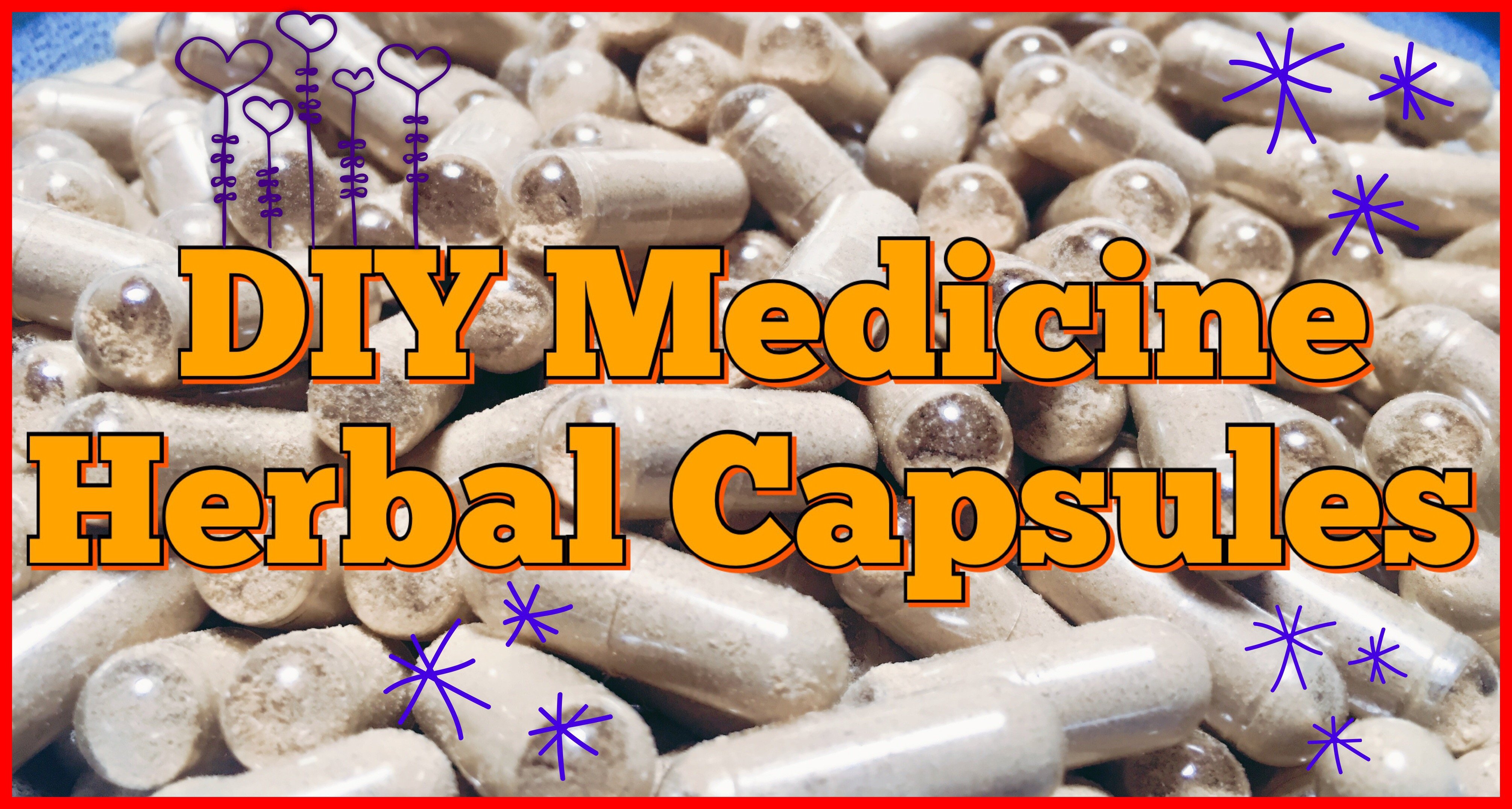
Herbs are fantastic allies in a self-care regime as they have a long and safe history of use.
Pharmaceutical drugs on the other hand are attributed to an estimated 65,000 deaths per year in the USA alone (not including complications and long term damage). The ideology behind allopathic (aka conventional) medicine is focused on pathology (illness) while the numerous traditional and contemporary modalities that use herbs focus more on balance, restoration, nourishment and healing, literally “to make whole”.
Herbalism is a beautiful lifelong journey that forms bonds and relationships between the individual and the natural world.
Join us in the DIY process of capsule making.
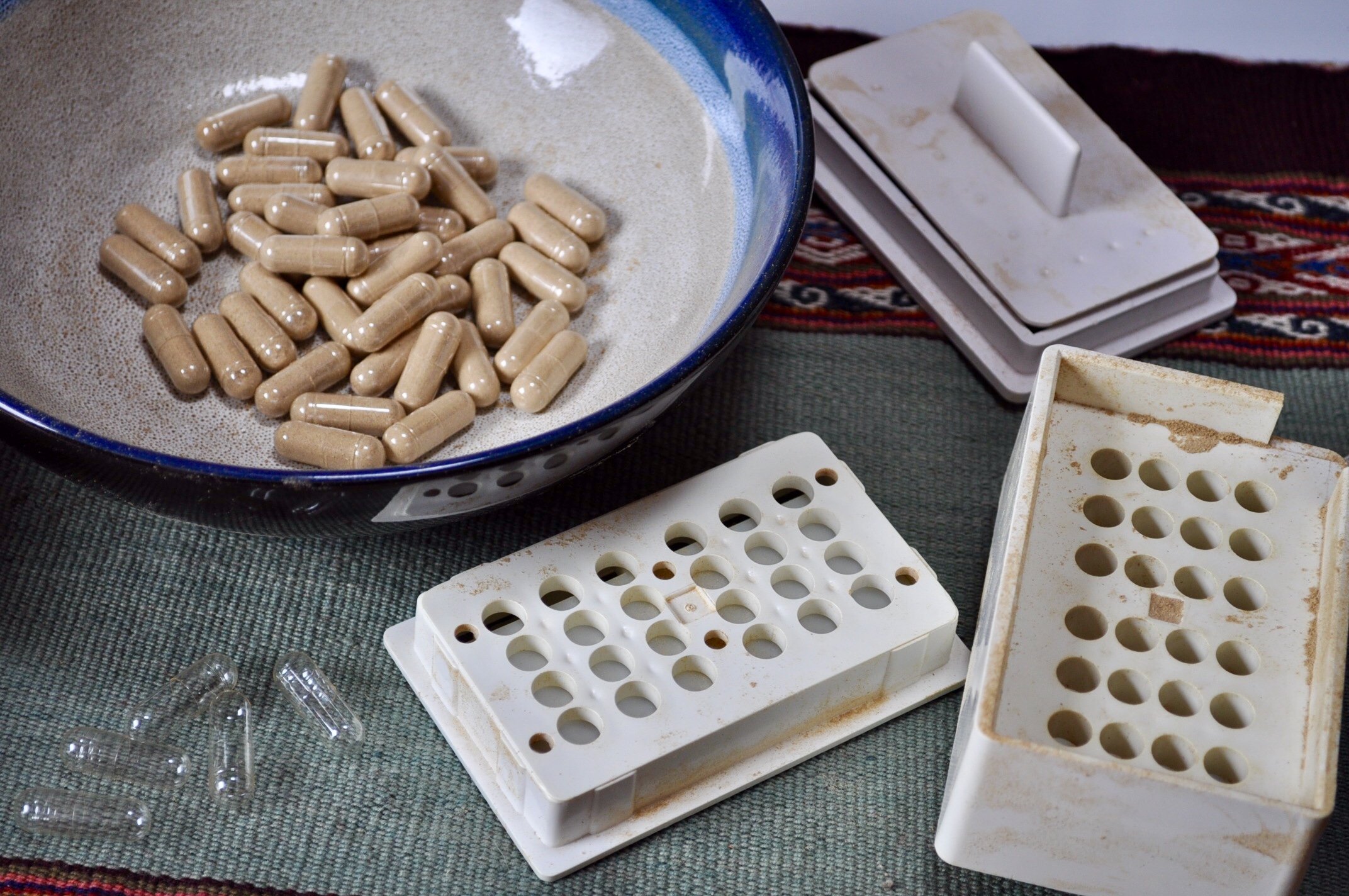
Making your own medicine
Relocalizing food has been a huge social movement and the medicine culture is growing steadily. As more awareness is raised about the potential hazards and shortcomings of allopathic medicine and pharmaceutical drugs, more focus is being place on herbal medicine.
We’ve all probably had herbal tea, but what makes it medicinal?
The difference between herbs as food and herbs as medicine may be subtle, but it often relates to dosage.
Each herb and every condition for every individual will call for differing dosages. An herbal tea bag most likely does not have the quantity of (most) herbs to be within the medicinal dosage range. Capsules, on the other hand, are a standardized way to intake herbal compounds easily and you can make them at home with a modest investment.
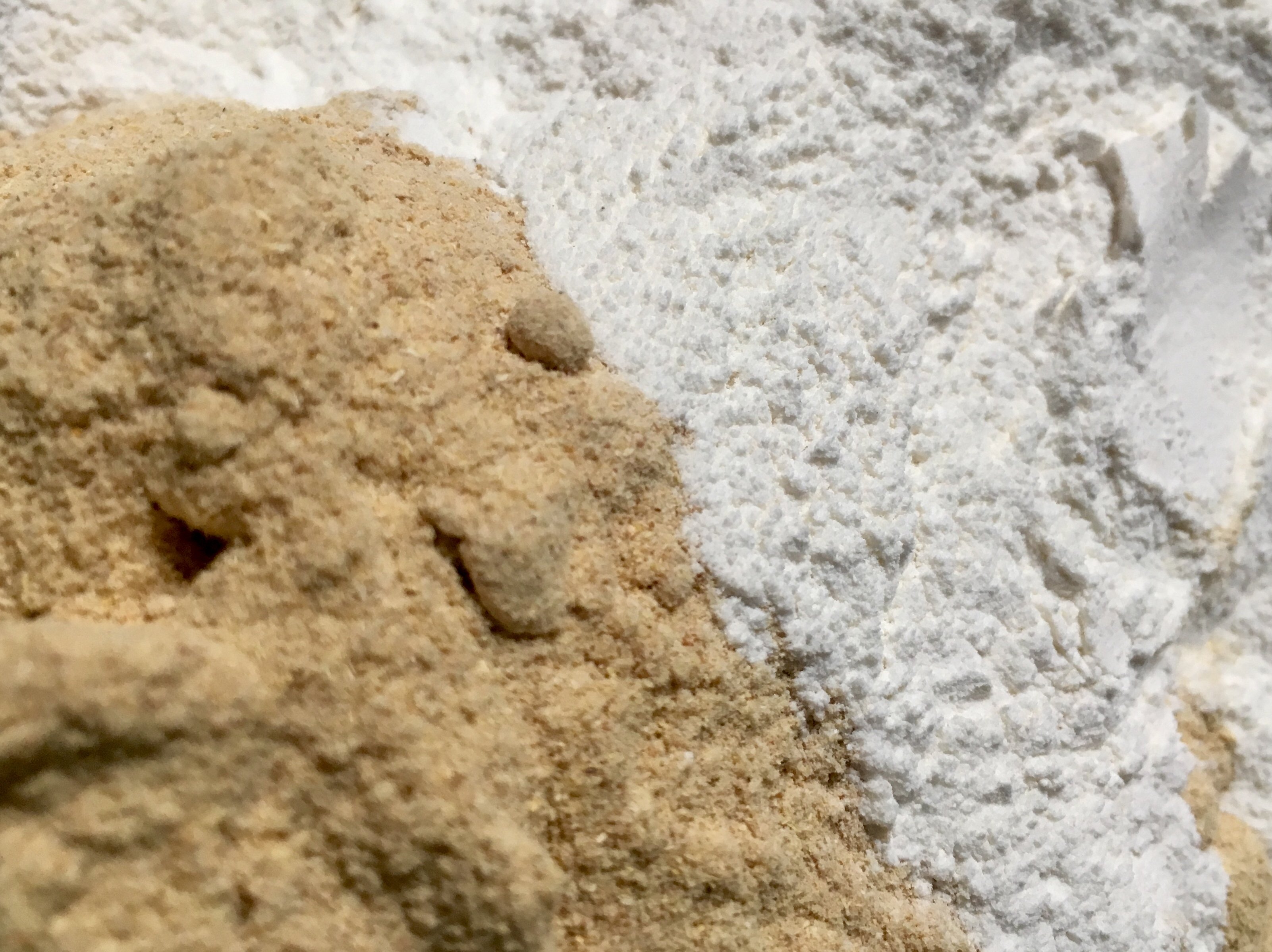
Shatavari & Wild Yam Powders
Economics
I don’t need to go into how much money is being made off the legal sale of drugs (many of which have horrible side effects) and the fact that the sale and languaging around herbal medicines is strongly regulated (while boasting very few deaths each year). Even prepared herbal medicine can become quite expensive if you are taking a substantial amount (some cases or conditions require large and/or prolonged doses).
Herbal medicine takes time to work and often acts slowly over a long period of time.
If you’re after consuming herbs over several months, it can be prohibitively expensive to purchase pre made capsuless. By making your own, you will know exactly what you are putting in your body and have access to the freshest freshest herbal allies in quantities you need and deserve.
As an example Wren is making Shatavari (Ayurvedic herb aka 1000 husbands) & Wild Yam capsules this morning. Organic capsules sell for 22-32 a piece. Making our own costs 0.1 cent for the capsule and .4 cents for the herb which ends up being .5 cents per capsule.
Be your own healer, you are the only one suited for this job.
You may have a chronic condition that could use some TLC and healing or it may have an acute imbalance that requires some attention. Either way there are numerous formulas you can blend and home and encapsulate them for ease of intake.
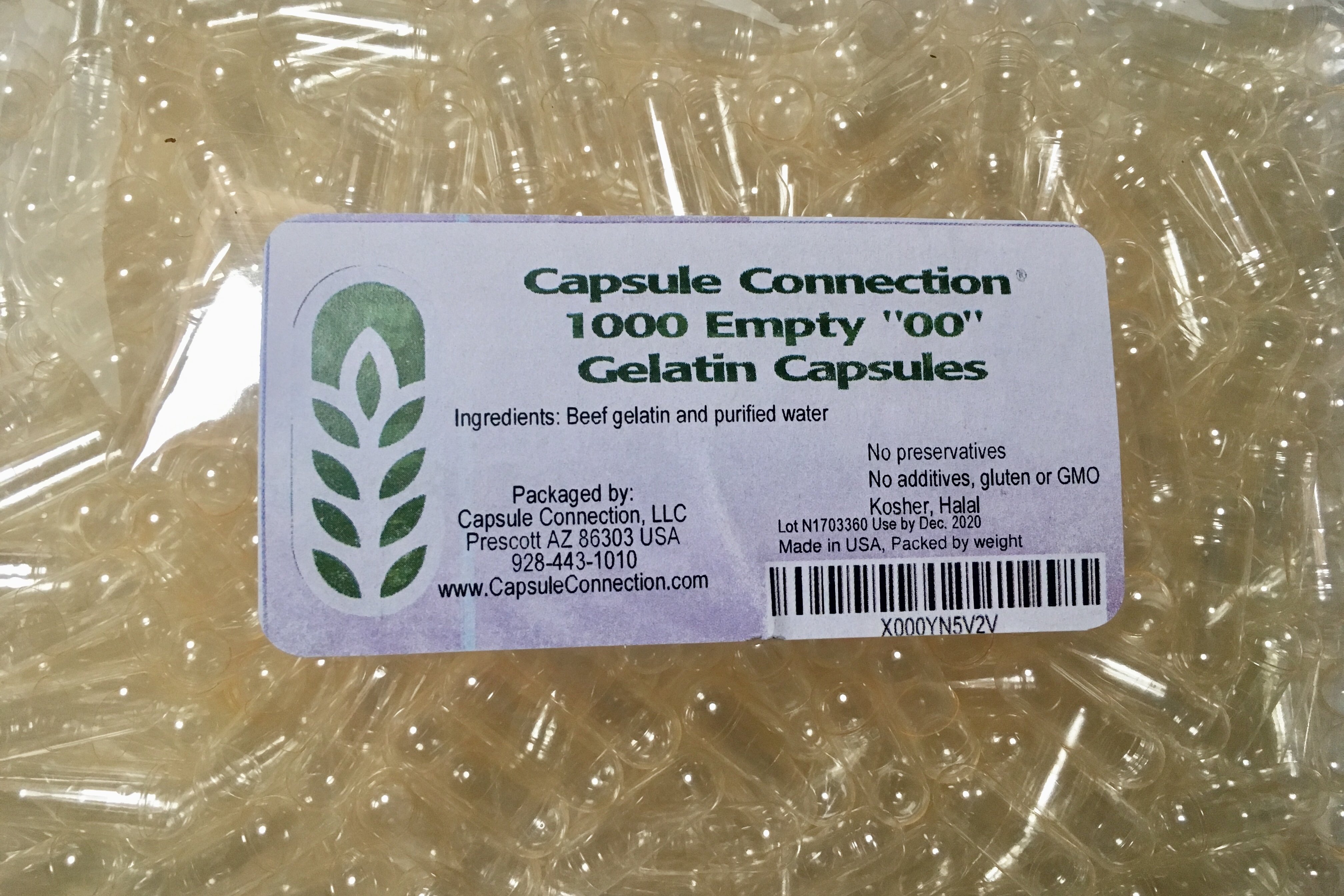
These are the capsules we use.
Making your own capsules
Start by familiarizing yourself with a single herb, formula or set of herbs you’re interested in making capsules out of. The herbs should be organically grown or ethically wildcrafted. They should be in powdered form and obtained fresh. Old or poorly stored herbs are less effective (this usually happens after a year on average- at this point, you can compost your herbs or sprinkle them at the base of plants). You can powder some herbs yourself in a food processor of blender (be wary of certain tough roots as your device may not be able to handle them).
You can even take it to the next level and grow or wild craft your own medicine. Think all the dandelions that go unharvested! Just be aware that sadly many homes and institutions use poisonous glyphosate aka Roundup and other harmful herbicides, obviously avoid using plants from these areas.
Capsule maker
The only special equipment needed is a capsule-making device. The model we use is very popular and is one we would recommend. It makes 24 capsules at a time and cost us around $20.
Making Capsules Step-by-step
Set aside some devoted time for creating your own medicine. It’s best to complete the process once you’ve started as the powders and capsules are both sensitive to moisture absorption. Make sure the capsules are kept bone dry and the capsule maker is equally dry before beginning. We have stored the capsules for 1/2 a year and, as our climate is very humid, we were unable to use them as they swelled up.
Assemble some bowls, spoons and a measuring device (a scale if you’re getting exact) in a comfortable dry space. Also plan ahead where you will store these capsules. We simply reuse plastic bottles with tight fitting lids. Now you’re ready to begin. Put on some nice music, if ya like.
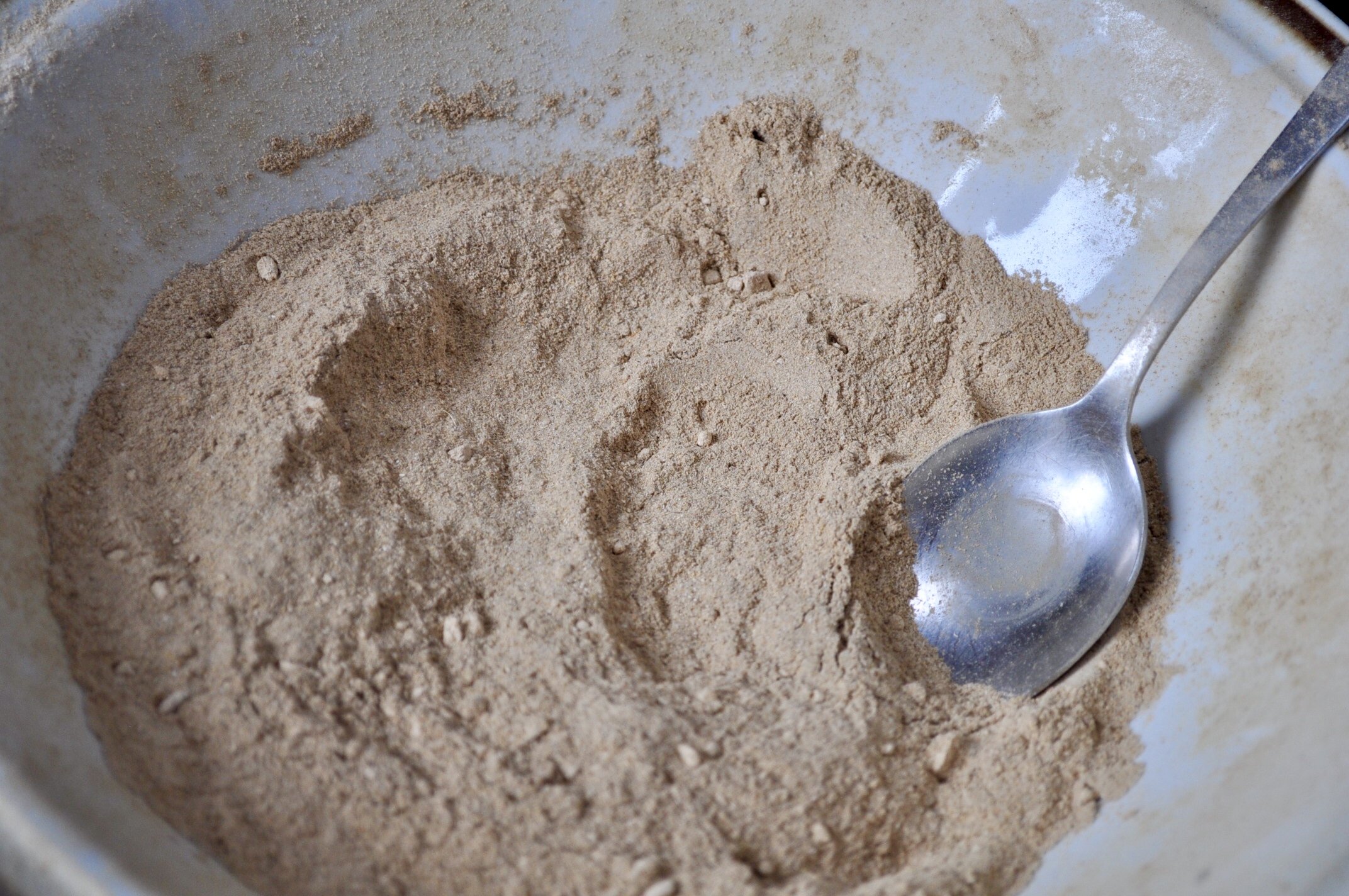
Step 1: Blending
This of course only applies to blends or formulas. The ratios may be in parts or by weight, but it many cases you can use a standard measuring device to create proper ratio. Keep in mind that there is some wiggle room, we’re not creating a chemical reaction here! Don’t fret over exactitudes, as the herbs you’ll be using (in most cases) won’t need to be measured to the microgram (as is the case in many pharmaceuticals). Most herbs are gentle and some even can be eaten like foods (some herbs even are considered nutritive foods in other countries, like burdock, astragalus, wild yam and more!).
Step 2: Filling
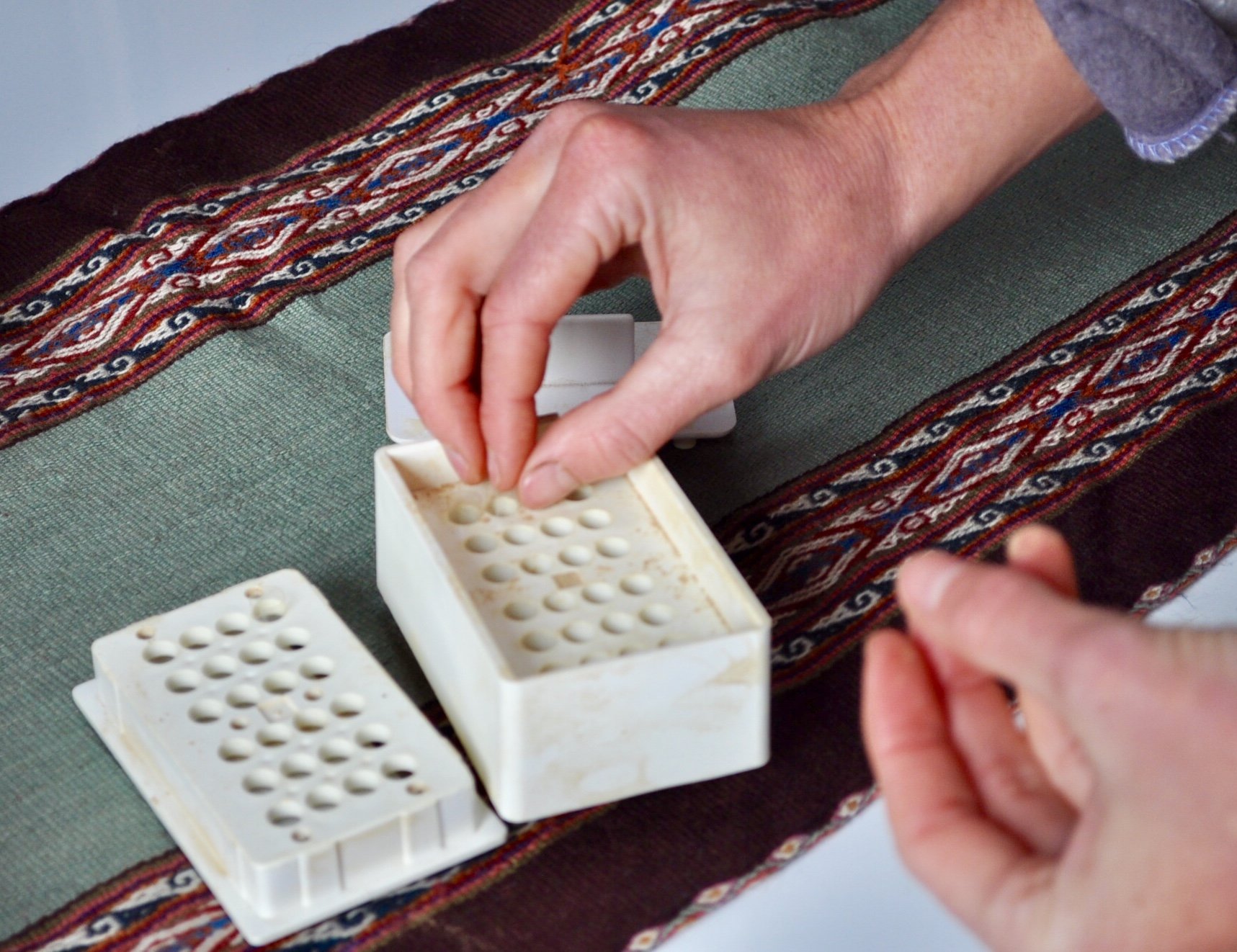
Take the pills apart and place the bigger half of the capsule in the largest tray and set the small half in the other part of the device.
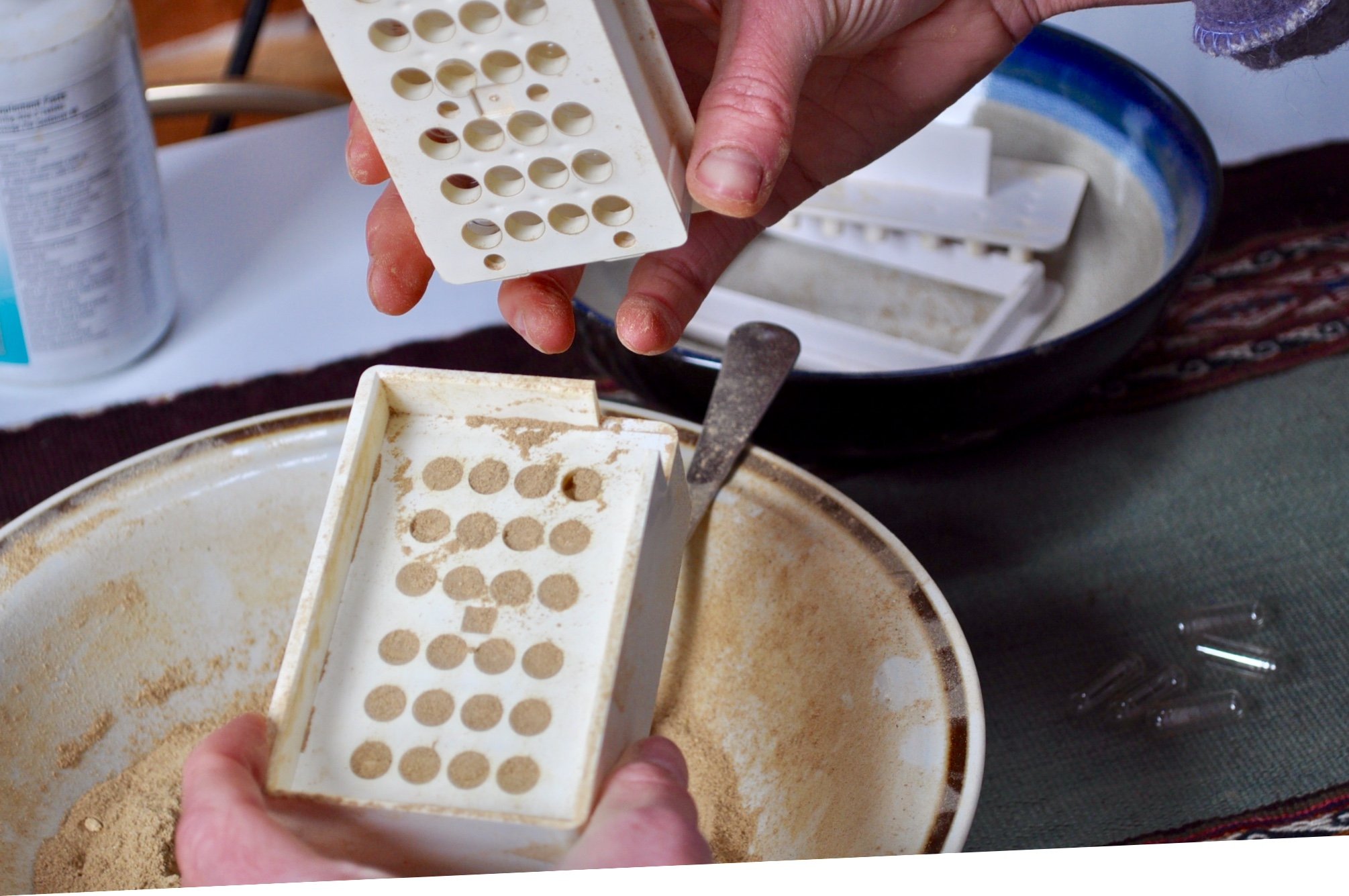
Begin by adding a spoonful of your herb or mixture of herbs into the tray. Use a card to evenly distribute the powder across the holes. Use the plunger to pack the powder into the capsules.
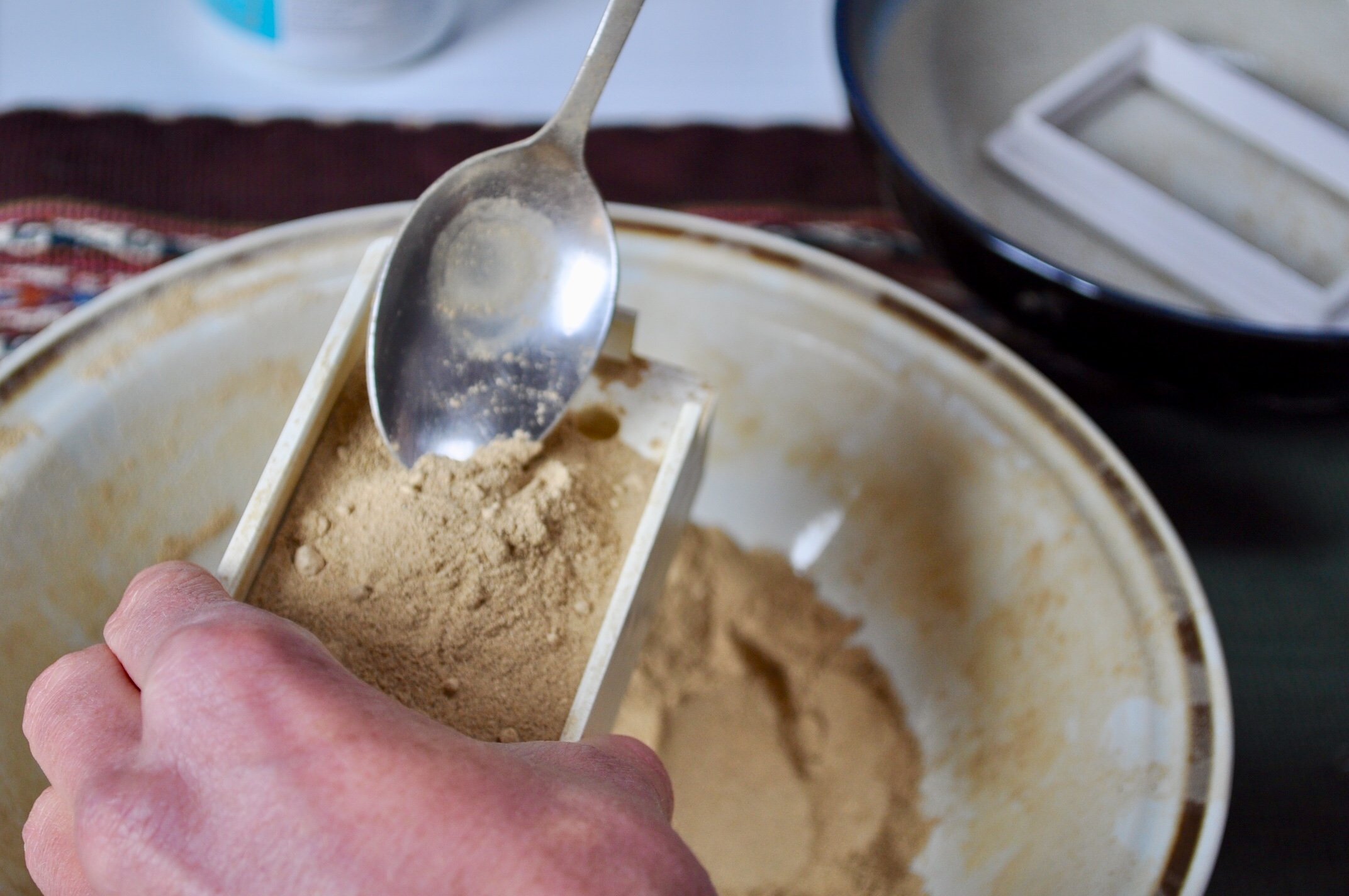
Repeat this process until the capsules are full and compact. You need to do this to ensure efficient use of capsules and ensure consistency in dosage.
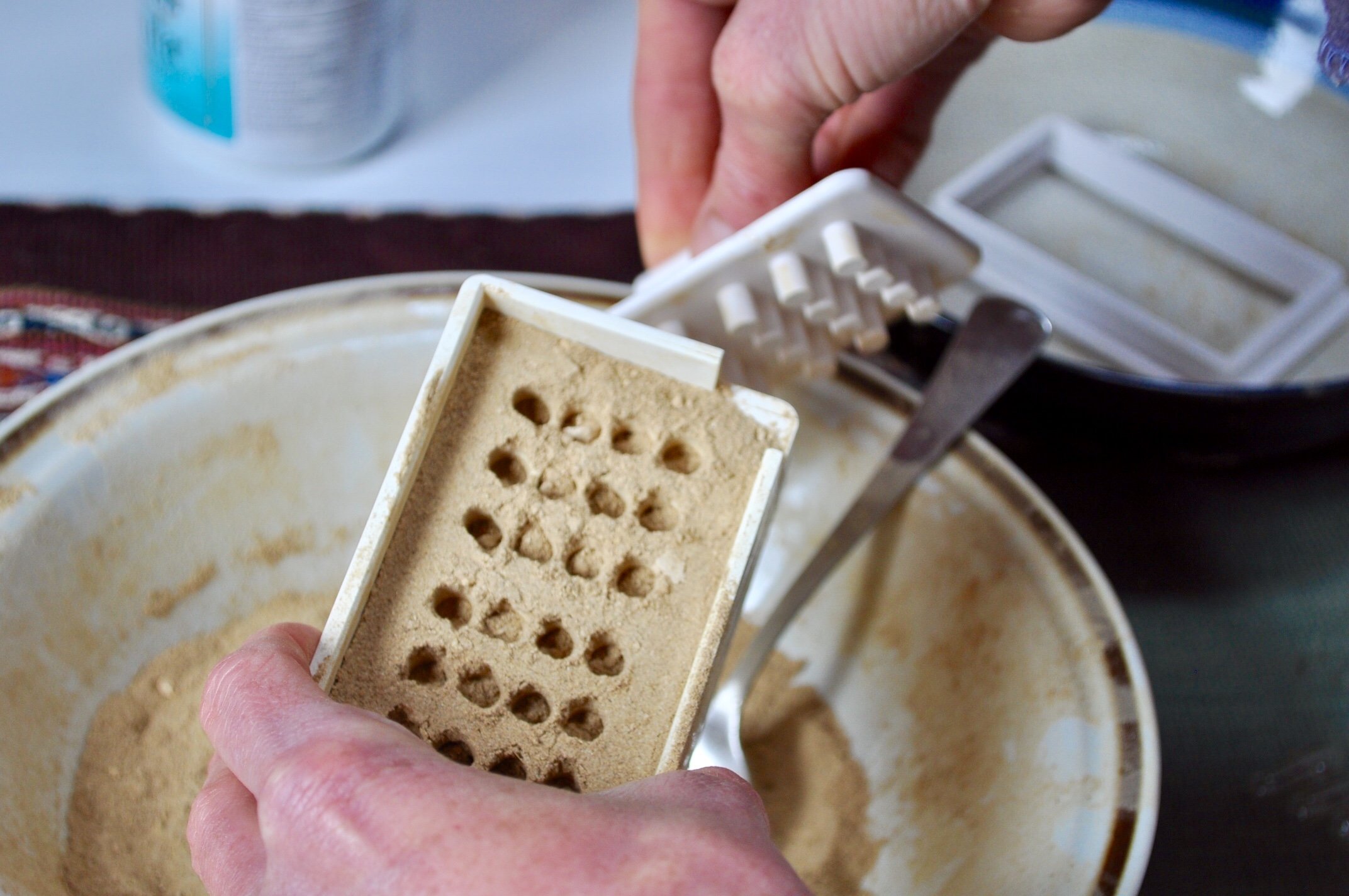
Step 3: Encapsulating
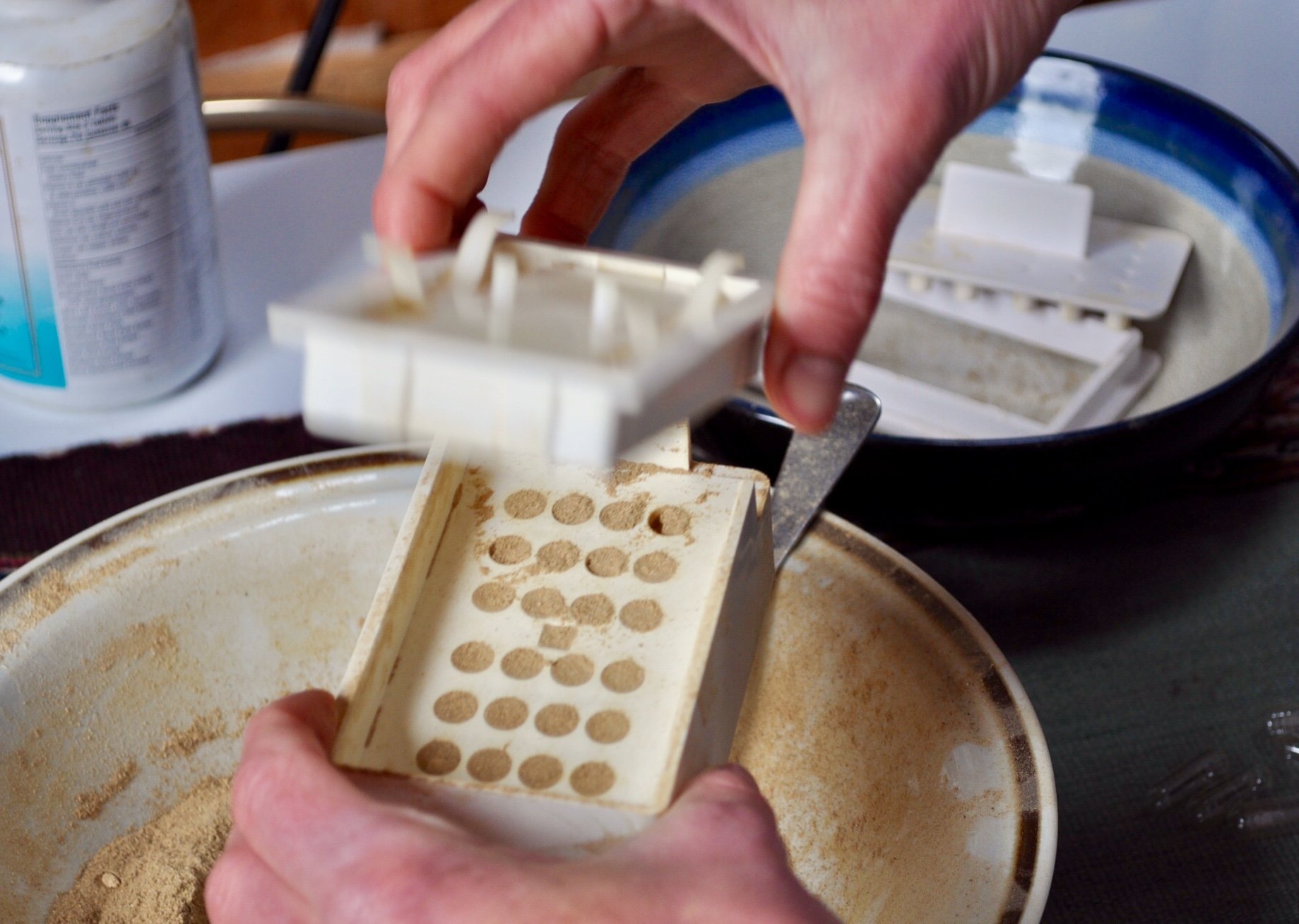
Double check to make sure the smaller half of the capsule is aligned in the top half of the device. Carefully place the piece over the powder-filled capsules and press firmly. If done correctly, the capsules should fit snuggly and seal onto themselves. You'll hear a subtle click sound.
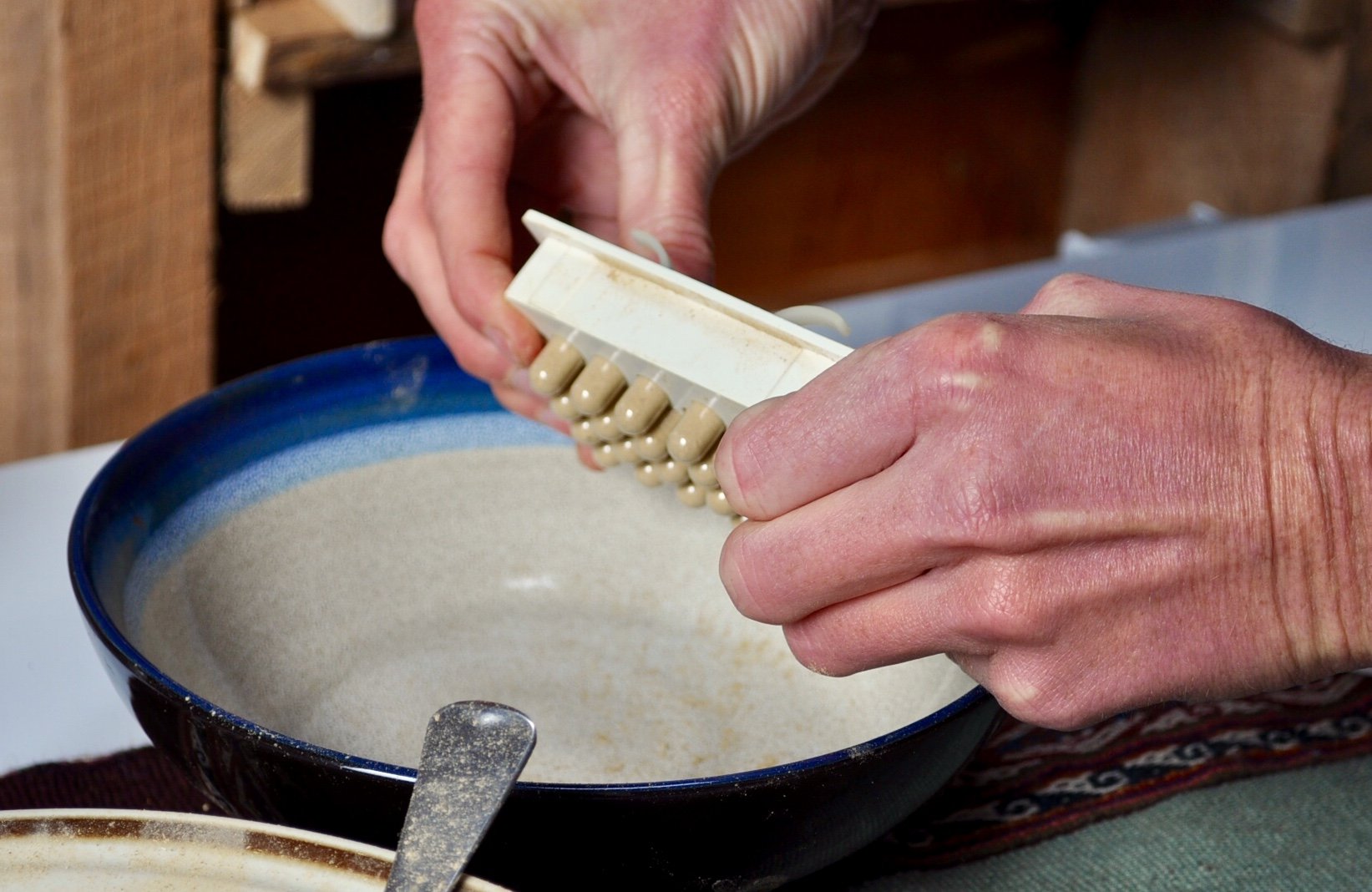
Step 4: Storing
Whatever container you use to store the capsules, make sure that it excludes light and moisture, the arch nemeses of herbal medicines. Not only will potency decrease, but the capsules will stick to each other if they come in contact with any moisture. Plastic bags will not cut it. Solid plastic, glass or sealable metal containers are a must.
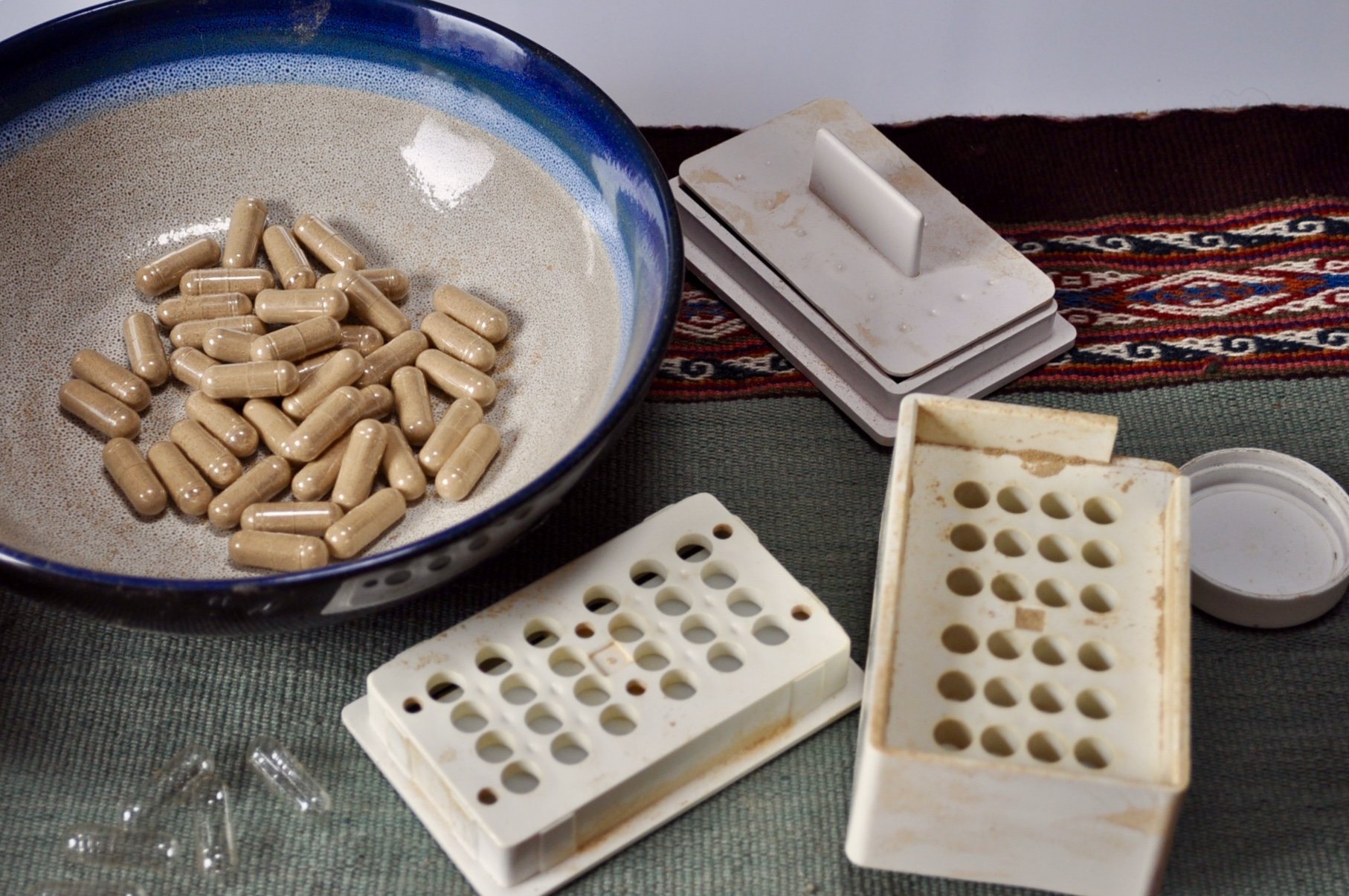
Now enjoy the simple self-care act of taking your herbal capsules.
As we’ve stated, this is an easy way to dip your toes into the great wide world of herbalism. Congratulations, you are now a part of a long lineage of many generations and millions of humans on the medicine path.
We wish you all the best and abundant vitality on your healing path. Follow us for more empowering posts on Herbalism, Permaculture and homesteading.
Disclaimer: Make sure you do your own research on the safety of herbs for your personal constitution. Most herbs are safe to use, but please do your own research and consult an herbalist or natural practitioner if you are uncertain!

